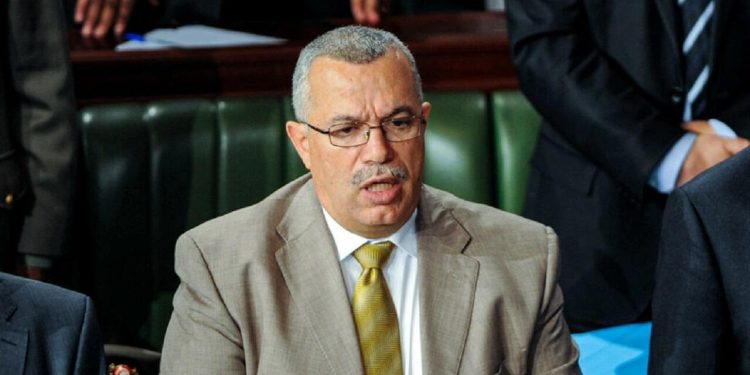Political prisoner Noureddine Bhiri, former vice president of the Tunisian parliament and former minister, was transferred to the Rabta Hospital in the capital Tunis after his health was deteriorated, raising widespread concerns about his detention conditions.
Bhiri suffers from breathing difficulties that have worsened in recent days, forcing the authorities to urgently transfer him to the hospital, where he is undergoing intensive medical follow-up. He is expected to require a lifelong oxygen apparatus.
His family has repeatedly warned of his health deterioration, stressing that his suffering is a direct result of the brutality he was exposed to while in custody more than a year ago.
Due to growing calls for an independent investigation into the conditions of his detention and the suitability of the medical care he is receiving, Bhiri’s health developments have caused widespread concern in both local and international human rights circles. The violations he is subjected to are seen as an extension of those that many political detainees in Tunisia face.
Since Al-Bahri faces prison sentences in cases deemed to be political in nature, including a file pertaining to an electronic blog that his defence team denied existed, observers believe that his case fits within a larger context related to the use of the judiciary to eliminate political opponents.
In addition to cases originating from his time as Minister of Justice in 2013, he is also facing additional charges, including those under the death penalty’s “conspiracy against state security” file.
Al-Bahri’s declining health coincides with growing criticism of Tunisia’s freedom situation, as the government is systematically limiting political opponents due to the rise in political prosecutions and arrest campaigns.


























